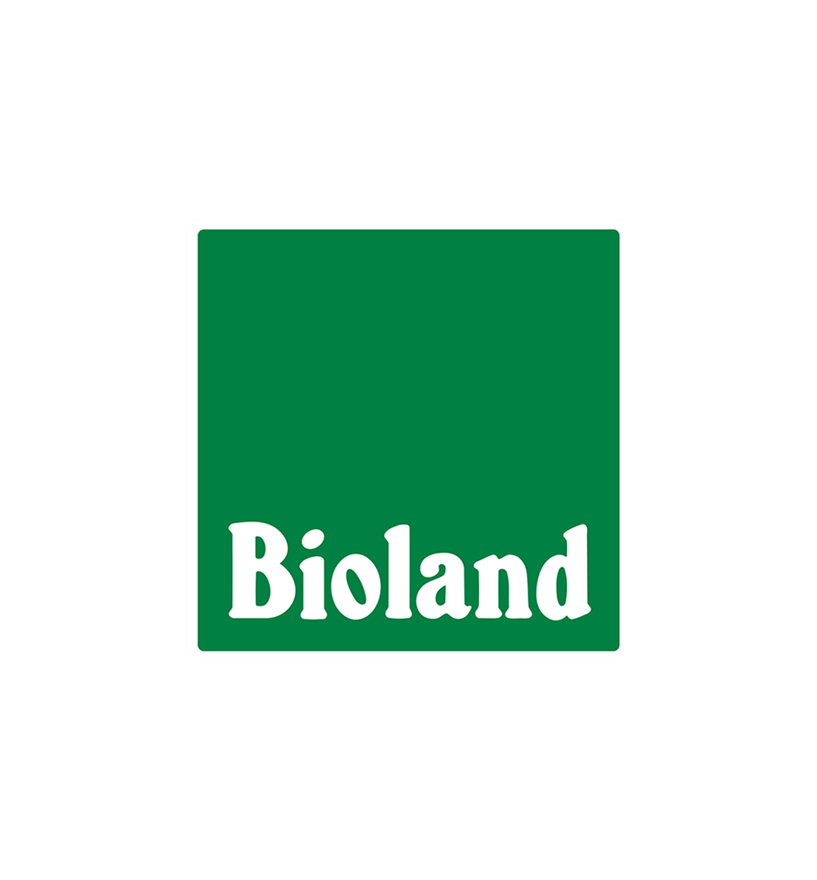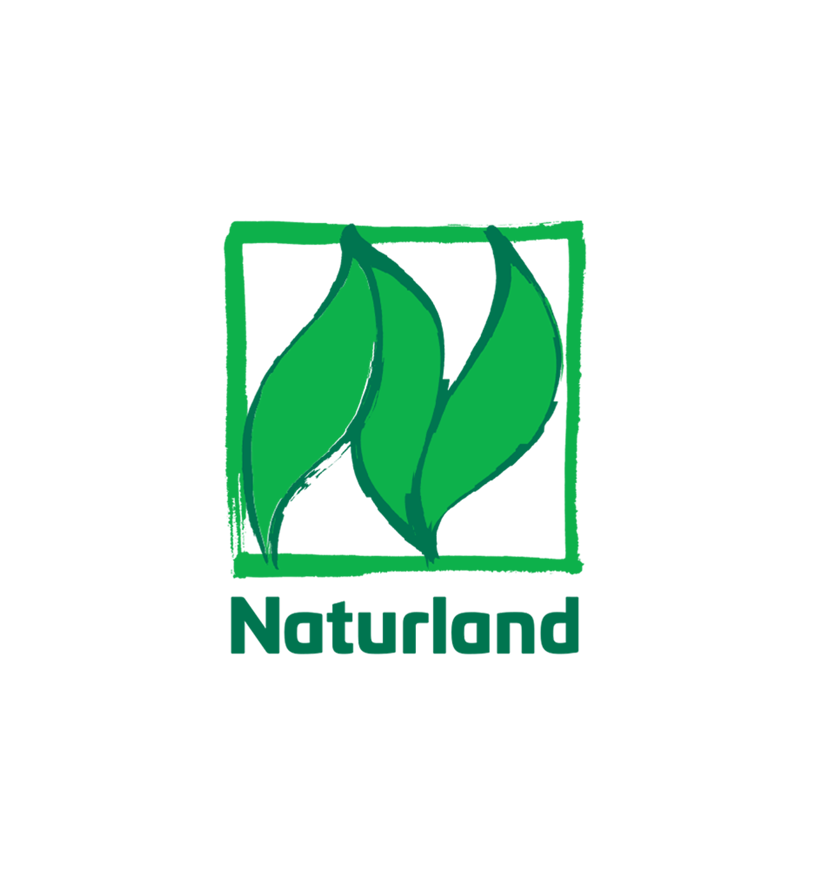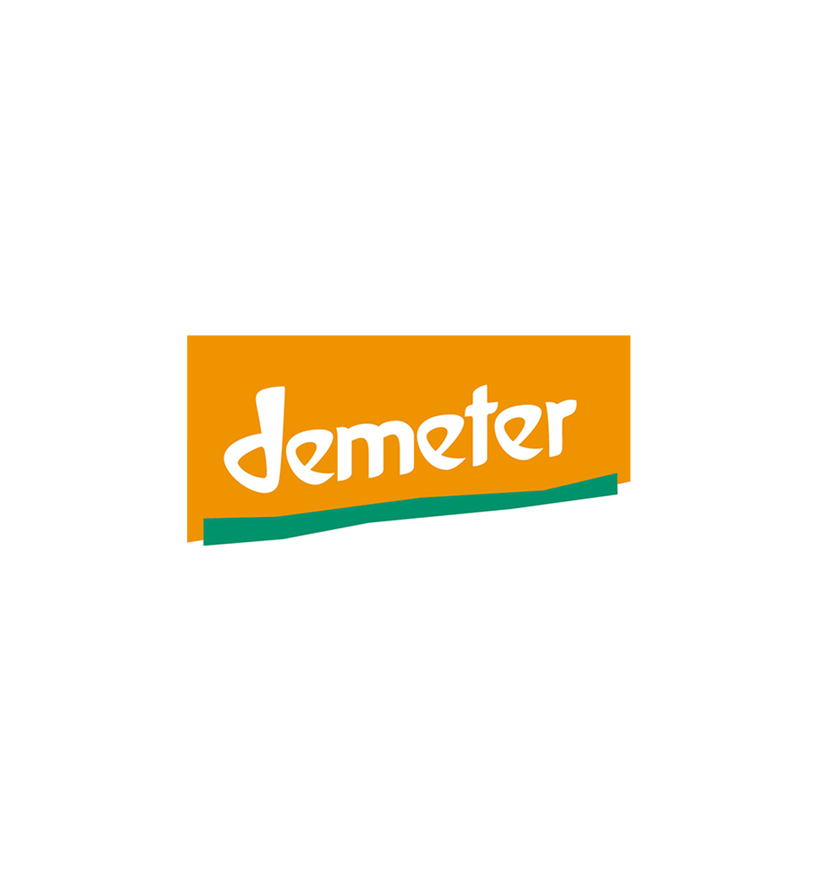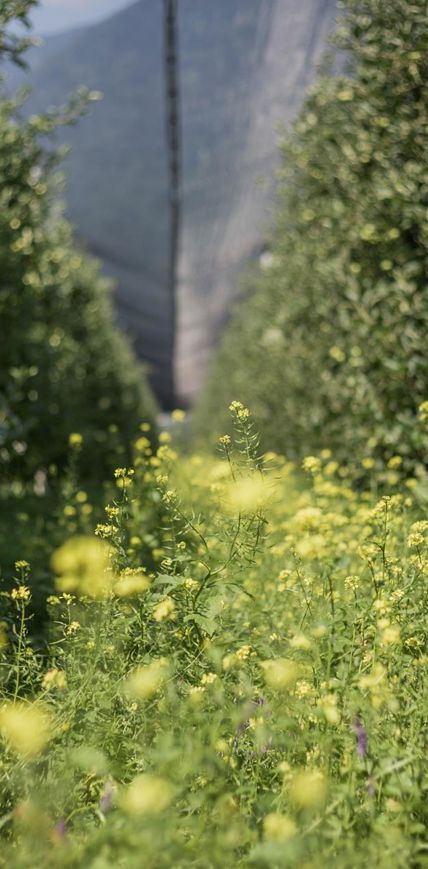Anyone who consciously chooses organic has already done a lot right. That's how our farmers see it, and many others out there who consciously choose organic apples. Here, there are various labels, all of which basically say the same thing, but where fundamental differences are often not so small.
All organic products are not the same.
Organic products are based on a conscious decision, and conviction in one’s head, hands and heart. As farmers no less than as consumers. But the issue is not either/or, organic or conventional – there is so much more to it.

EU Bio
Starting with the EU organic logo, the small juicy green label with the star-shaped leaf. The seal identifies organic farming in the EU and creates organic standards that, for example, prohibit the use of GMOs and only provide for plant protection with natural-identical means. This is a first step towards a uniform regulation and its labeling, but there is still "room for improvement". And because many farmers see things the same way, they have joined forces, founded their own associations back then, or joined existing ones.
These associations not only place much stricter requirements on organic farming than the EU standard requires but above all promote a more sustainable and holistic view of agriculture, from biodiversity to natural plant protection, organic methods for fertilization, or the promotion of soil fertility. And social responsibility, such as fair remuneration or strengthening local economic cycles, also play a major role, as does transparency and traceability, and finally strict, regular checks on the various members and their apples.
The most important associations and their key points in a nutshell:

Bioland
The association was founded in the 1970s in Germany and has had its own office in South Tyrol since 1991. As one of the oldest associations, Bioland stands for ecologically high-quality food and places a holistic approach from cultivation to the table at the forefront. Active climate, soil, and nature protection are central alongside the promotion of biodiversity through various ecologization measures.
Through its strict guidelines and control procedures, the association guarantees a standard that goes far beyond the legal minimum standard for organic food. Bioland farmers follow strict guidelines, and the products are marked with the Bioland seal. This stands for sustainable, ecological agriculture, the use of natural-identical pesticides and fertilizers, promotes regional value chains, and the dialogue between farmers and consumers.
BiolandThrough its strict guidelines and control procedures, the association guarantees a standard that goes far beyond the legal minimum standard for organic food. Bioland farmers follow strict guidelines, and the products are marked with the Bioland seal. This stands for sustainable, ecological agriculture, the use of natural-identical pesticides and fertilizers, promotes regional value chains, and the dialogue between farmers and consumers.

Naturland
The "Naturland" association was founded in 1982 and is now one of the most important internationally operating organic associations. Naturland represents strict organic guidelines with a comprehensive view of sustainability. In addition to ecological cultivation methods that conserve soil and promote biodiversity, the agricultural association also advocates for sustainable and social aspects, fair working conditions, maximum transparency, and, for example, the use of renewable energy sources.
Similar to that of Bioland, the Naturland seal guarantees that products are grown and produced according to strict ecological guidelines.
NaturlandSimilar to that of Bioland, the Naturland seal guarantees that products are grown and produced according to strict ecological guidelines.

Demeter
The Demeter movement was founded in 1928 when a group of farmers and scientists formulated the principles of biodynamic agriculture. Rudolf Steiner, an Austrian philosopher and founder of anthroposophy, played a decisive role in the development of these principles, which later became the basis for the Demeter certification.
With Demeter, organic cultivation takes place according to the strictest natural principles, as the interactions between earth, plants, and cosmic rhythms are at the center of attention. Fertilizers from own animal husbandry, special biodynamic preparations from herbs and minerals, or consideration of lunar phases are taken into account within a holistic biodynamic approach.
The Demeter seal represents exactly these ecological and social standards in agriculture.
DemeterWith Demeter, organic cultivation takes place according to the strictest natural principles, as the interactions between earth, plants, and cosmic rhythms are at the center of attention. Fertilizers from own animal husbandry, special biodynamic preparations from herbs and minerals, or consideration of lunar phases are taken into account within a holistic biodynamic approach.
The Demeter seal represents exactly these ecological and social standards in agriculture.
Organic is good for people, animals, and the environment. Through their holistic approach, organic products from associations like Bioland, Naturland, or Demeter offer a clear added value compared to the EU organic seal because they set their bar much higher than the EU standard. With stricter rules, more rigorous certification procedures, and stricter controls. In fact, the only room left for improvement is in the apple orchards themselves. Lots of clean air, lush greenery, and sunshine.


